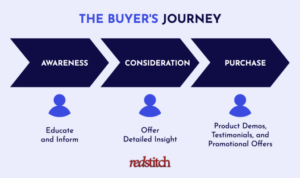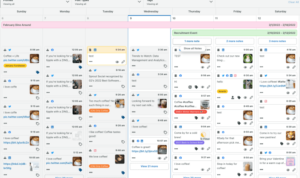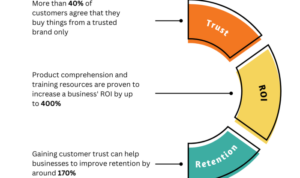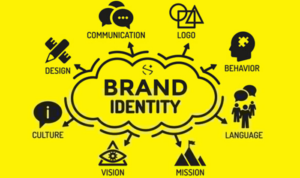Developing an Event Marketing Plan dives deep into the strategies and tactics needed to create a successful event marketing blueprint that resonates with your target audience. Get ready to learn how to craft a plan that will leave a lasting impression!
Understanding Event Marketing Plan
An event marketing plan is a strategic document outlining the promotional tactics and strategies to promote an event effectively. It includes details on target audience, budget, timeline, and key performance indicators.
Importance of having a well-developed event marketing plan, Developing an Event Marketing Plan
A well-developed event marketing plan is crucial for the success of any event. It helps in setting clear objectives, defining target audience, allocating resources effectively, and measuring the success of the event.
Key components included in an event marketing plan
- Target Audience Identification: Defining the specific group of people the event aims to attract.
- Goals and Objectives: Setting measurable goals that align with the overall event objectives.
- Promotional Strategies: Outlining the tactics to promote the event, including social media, email marketing, and partnerships.
- Budget Allocation: Determining the budget for each marketing activity and ensuring cost-effectiveness.
- Timeline: Creating a timeline with deadlines for each marketing task to ensure timely execution.
- Measurement and Evaluation: Establishing key performance indicators to measure the success of the event marketing efforts.
Setting Objectives
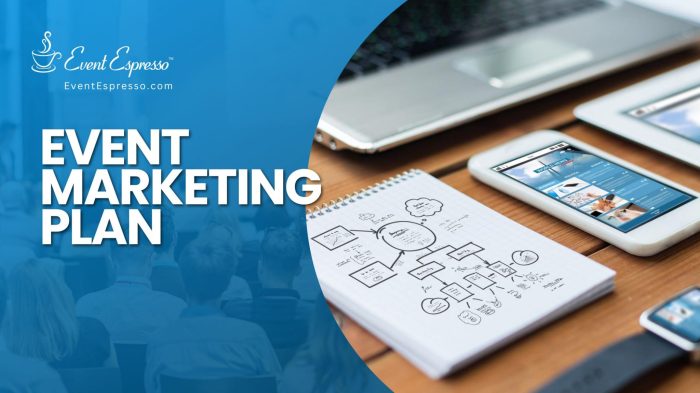
Setting clear and measurable objectives is crucial when developing an event marketing plan. Objectives help in defining the purpose of the event, guiding the marketing strategies, and evaluating the success of the event.
Specific Objectives in Event Marketing Plans
- Increase event attendance by 20% compared to the previous year.
- Generate 100 new leads during the event.
- Boost social media engagement by 30% before, during, and after the event.
- Secure partnerships with at least 5 key industry influencers.
Aligning Objectives with Business Goals
Setting objectives that align with overall business goals is essential for ensuring that the event contributes to the organization’s growth and success. By aligning objectives with business goals, companies can maximize the impact of their event marketing efforts and drive tangible results that benefit the business as a whole.
Identifying Target Audience
Identifying the target audience for an event is crucial for its success. It involves determining the specific group of people who are most likely to attend and engage with the event.
Understanding the demographics, interests, behaviors, and preferences of the target audience is essential in shaping the event marketing strategies. This information helps in tailoring the event content, messaging, and promotional activities to resonate with the target audience effectively.
Strategies for Identifying Target Audience
- Conduct market research to gather data on demographics, psychographics, and buying behaviors of potential attendees.
- Utilize social media analytics and insights to identify and segment the target audience based on engagement patterns and interests.
- Engage with past attendees through surveys or feedback forms to understand their motivations and preferences.
- Collaborate with industry influencers or partners to reach a broader audience that aligns with the event’s theme or purpose.
Budgeting and Resource Allocation
When it comes to developing an event marketing plan, budgeting and resource allocation play a crucial role in determining the success of the event. Proper planning and allocation of resources can make a significant impact on the overall outcome and return on investment (ROI) of the event.
Steps in Budgeting for an Event Marketing Plan
- Define your overall event marketing objectives and goals to determine the scope of the budget needed.
- Research and estimate the costs associated with venue rental, marketing materials, advertising, staff, entertainment, and other necessary expenses.
- Create a detailed budget spreadsheet outlining all projected expenses and allocate funds accordingly.
- Consider potential sources of funding such as sponsorships, ticket sales, or partnerships to supplement the budget.
- Regularly monitor and track expenses to ensure you stay within budget and make adjustments as needed.
Effective Resource Allocation for Event Marketing
- Identify key areas of focus for your event marketing plan, such as social media advertising, email campaigns, or onsite activations.
- Allocate resources based on the importance and impact of each marketing channel in reaching your target audience.
- Prioritize high-impact strategies that align with your marketing goals and budget constraints to maximize effectiveness.
- Consider outsourcing certain tasks or partnering with vendors to leverage expertise and resources more efficiently.
Tips for Optimizing Budget Allocation
- Invest in high-quality marketing materials and experiences that leave a lasting impression on attendees.
- Utilize data analytics to track the performance of your marketing efforts and adjust allocation based on what works best.
- Negotiate with vendors and suppliers for discounts or special deals to stretch your budget further.
- Explore creative and cost-effective marketing strategies, such as partnerships or influencer collaborations, to expand reach without breaking the bank.
Developing Promotional Strategies
Promotional strategies play a crucial role in the success of any event. By effectively reaching and engaging with the target audience, promotional campaigns can generate excitement and increase attendance. Let’s dive into some common promotional strategies used in event marketing, including the impact of social media, email marketing, and other channels.
Role of Social Media in Promoting Events
Social media has revolutionized the way events are promoted. Platforms like Facebook, Instagram, Twitter, and LinkedIn offer a direct line of communication with potential attendees. Event organizers can create buzz through engaging posts, live updates, and interactive content. By leveraging social media influencers and targeted ads, events can reach a wider audience and drive ticket sales.
Email Marketing Strategies for Events
Email marketing remains a powerful tool for promoting events. Organizers can create personalized campaigns tailored to different segments of their audience. By sending out timely reminders, exclusive offers, and engaging content, email marketing can drive conversions and boost event attendance. Utilizing catchy subject lines and compelling visuals can increase open rates and engagement.
Other Promotional Channels
In addition to social media and email marketing, event organizers can explore other promotional channels such as partnerships, sponsorships, and traditional advertising. Collaborating with relevant brands or organizations can expand reach and credibility. Sponsorships can provide financial support and access to a wider network of potential attendees. Traditional advertising through print, radio, and TV can also complement digital efforts and reach audiences who may not be active on social media.
Successful promotional campaigns are characterized by creativity, consistency, and a deep understanding of the target audience.
Leveraging Partnerships and Sponsorships: Developing An Event Marketing Plan

Partnerships and sponsorships play a crucial role in enhancing event marketing efforts by providing additional resources, credibility, and reach to the target audience.
Strategies for Identifying and Collaborating with Partners and Sponsors
When looking for potential partners and sponsors, it is important to first identify companies or organizations that align with the values and goals of your event. Here are some strategies to consider:
- Research companies that have sponsored similar events in the past.
- Reach out to local businesses that may be interested in supporting community events.
- Create a sponsorship package outlining the benefits for partners and sponsors.
- Attend networking events to connect with potential partners and sponsors.
Successful Partnerships in Event Marketing and Benefits
Successful partnerships in event marketing can lead to increased brand exposure, expanded audience reach, and cost-sharing opportunities. Here are some examples:
| Event | Partnership | Benefits |
|---|---|---|
| Music Festival | Collaboration with a local radio station | Increased promotion through radio ads and social media posts |
| Charity Run | Sponsorship from a sports apparel company | Branded merchandise for participants and exposure to a fitness-oriented audience |
| Food Festival | Partnership with a popular food blogger | Featured blog post promoting the event and driving ticket sales |
Implementation and Execution
Implementing an event marketing plan is crucial for the success of any event. It involves putting all the strategies and tactics into action to achieve the desired outcomes. Here’s a breakdown of the process from start to finish:
Timeline for Execution
- Pre-Event: This phase includes tasks like finalizing logistics, confirming partnerships, and launching promotional campaigns. It typically takes place weeks or months before the event.
- Event Day: On the day of the event, all marketing efforts come together. This involves executing on-site promotions, engaging attendees, and ensuring everything runs smoothly.
- Post-Event: After the event, it’s essential to follow up with attendees, analyze results, and gather feedback. This phase helps assess the effectiveness of the marketing strategies implemented.
Monitoring and Evaluation
- Tracking Metrics: During the event, monitor key performance indicators like attendance numbers, engagement rates, and social media interactions. This data helps evaluate the impact of marketing efforts in real-time.
- Gathering Feedback: Engage with attendees through surveys, feedback forms, or social media polls to gather insights on their experience. This feedback can inform future event marketing strategies.
- Post-Event Analysis: After the event, analyze the collected data to assess the success of the marketing plan. Look at metrics like return on investment, brand visibility, and attendee satisfaction to measure effectiveness.
Post-Event Evaluation and Analysis
After the event has concluded, it is crucial to conduct a post-event evaluation to determine the effectiveness of the marketing plan and overall event success. This evaluation provides valuable insights that can be used to improve future event marketing strategies and enhance outcomes.
Key Metrics for Analysis
- Attendance Numbers: Measure the actual turnout compared to the projected attendance to gauge the event’s popularity.
- Engagement Levels: Analyze attendee interactions, social media engagement, and feedback to assess audience engagement.
- Lead Generation: Evaluate the number of leads generated during the event and their quality for potential conversion.
- Return on Investment (ROI): Calculate the ROI by comparing the event expenses to the revenue generated as a result of the event.
Using Analysis for Future Strategies
- Identify Strengths and Weaknesses: Use the evaluation findings to identify what worked well and areas that need improvement for future events.
- Adjust Marketing Tactics: Modify marketing strategies based on the analysis to reach a wider audience or enhance engagement.
- Set Clear Objectives: Establish clear goals for future events based on the insights gained from the post-event evaluation to drive success.
- Enhance Participant Experience: Implement changes to enhance the overall participant experience based on feedback and data collected.







